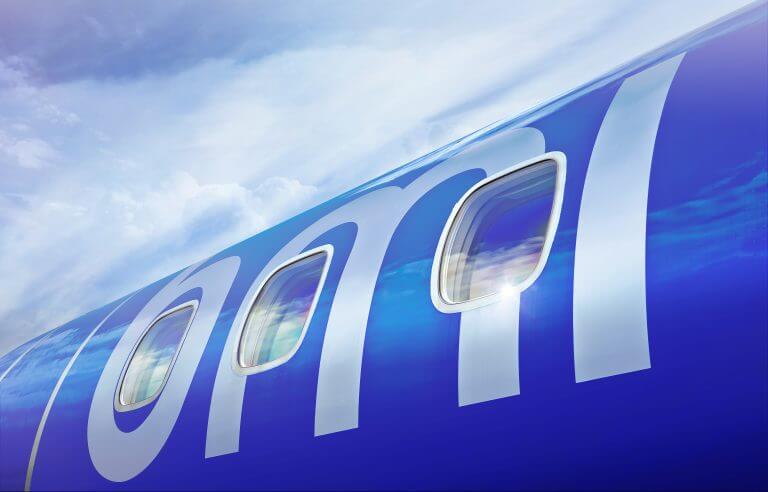The British regional airline Flybmi has ceased all operations with immediate effect and is filing for administration, the firm announced today Saturday, February 16th. The company was based in the East Midlands and had a staff of some 376 employees, flying to 25 destinations with a fleet of around 17 aircraft. Last year the airline carried 522,000 passengers on 29,000 flights.
The shock news has been blamed on three main factors – the high cost of fuel, carbon costs and Brexit uncertainty. Flights operated by flybmi served Aberdeen, Bristol, Brno, City of Derry, Dusseldorf, East Midlands, Esbjerg, Frankfurt, Hamburg, Jonkoping, Karlstad, London Stansted, Lublin, Milan Bergamo, Munich, Newcastle, Norrkoping, Nuremberg, Oslo, Paris Charles de Gaulle, Rostock/Laage, Saarbrucken and Stavanger.
The company said it had been badly affected by rises in fuel and carbon costs and uncertainty over Brexit, in a statement posted on its website, “It is with a heavy heart that we have made this unavoidable announcement today. The airline has faced several difficulties, including recent spikes in fuel and carbon costs, the latter arising from the EU’s recent decision to exclude UK airlines from full participation in the Emissions Trading Scheme. These issues have undermined efforts to move the airline into profit. Current trading and future prospects have also been seriously affected by the uncertainty created by the Brexit process, which has led to our inability to secure valuable flying contracts in Europe and lack of confidence around bmi’s ability to continue flying between destinations in Europe. Additionally, our situation mirrors wider difficulties in the regional airline industry which have been well documented.
“Against this background, it has become impossible for the airline’s shareholders to continue their extensive programme of funding into the business, despite investment totalling over £40m in the last six years. We sincerely regret that this course of action has become the only option open to us, but the challenges, particularly those created by Brexit, have proven to be insurmountable.
“Our employees have worked extremely hard over the last few years and we would like to thank them for their dedication to the company, as well as all our loyal customers who have flown with us over the last 6 years.”
The UK’s Civil Aviation Authority issued the following advice to any passengers of Flybmi affected by the firm’s shock end. “If you booked directly with British Midland Regional (FlyBMI) and paid by credit card you may be protected under Section 75 of the Consumer Credit Act 1974 and should contact your card issuer for further information. Similarly, if you paid by debit or charge card you should contact your card issuer for advice as you may be able to make a claim under their chargeback rules.
If you purchased travel insurance that may include cover for scheduled airline failure, known as SAFI, you should contact your insurer. If you did not book directly with British Midland (FlyBMI) and purchased your tickets through an intermediary, you should contact your booking or travel agent in the first instance.”
More detail are available on the
“Our immediate steps will be to support Flybmi pilots and explore with the directors and administrators whether their jobs can be saved.”
Another regional airline with a similar name, Flybe, was quick to distance itself from the collapsed carrier, “We are very sorry to hear about the situation with the competing British regional airline Flybmi and our thoughts are with their employees during these difficult times. Flybe has nothing to do with Flybmi and our flights continue to operate as normal.” the firm said on its social media outlets.
The demise of Flybmi is a sad day for the British aviation industry, it was for many, the very last recognisable incantation or subsidiary of the former BMI/BMA brand that had been a stalwart of the British airline scene since 1964.

